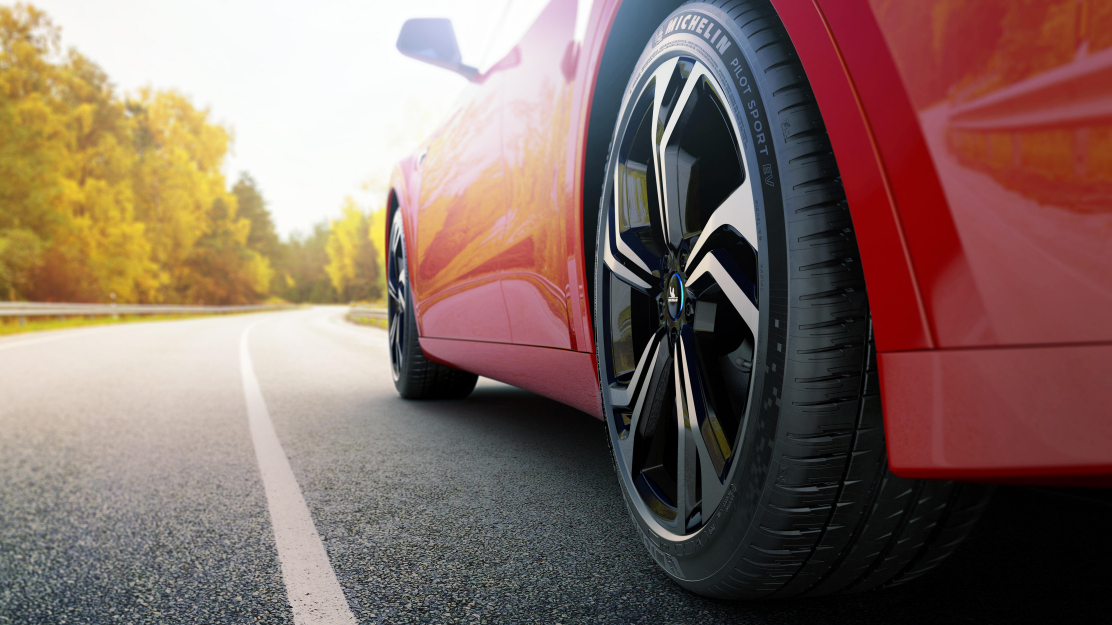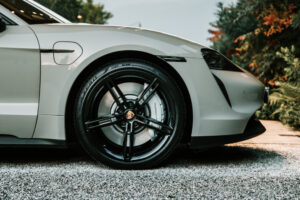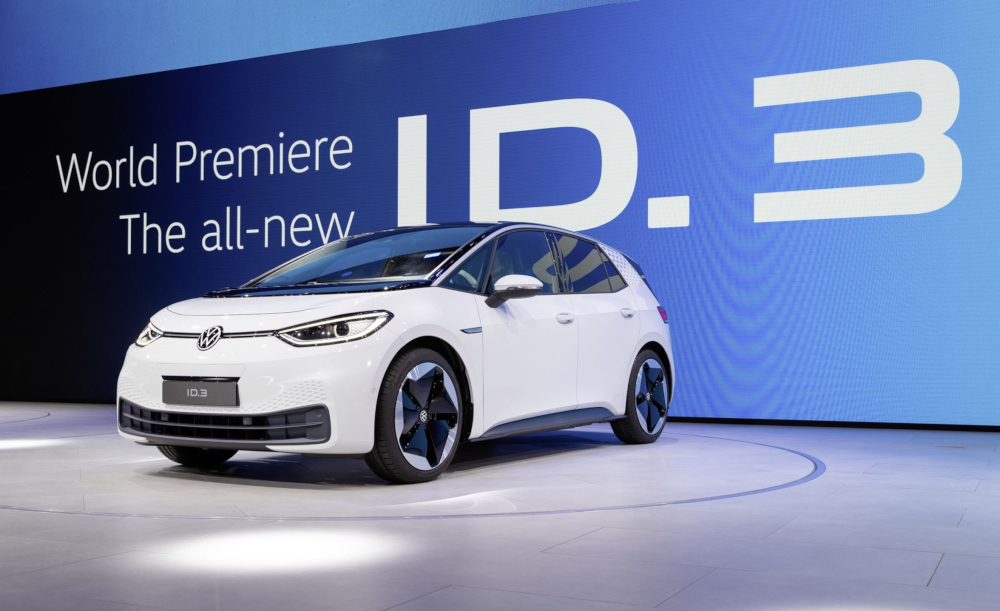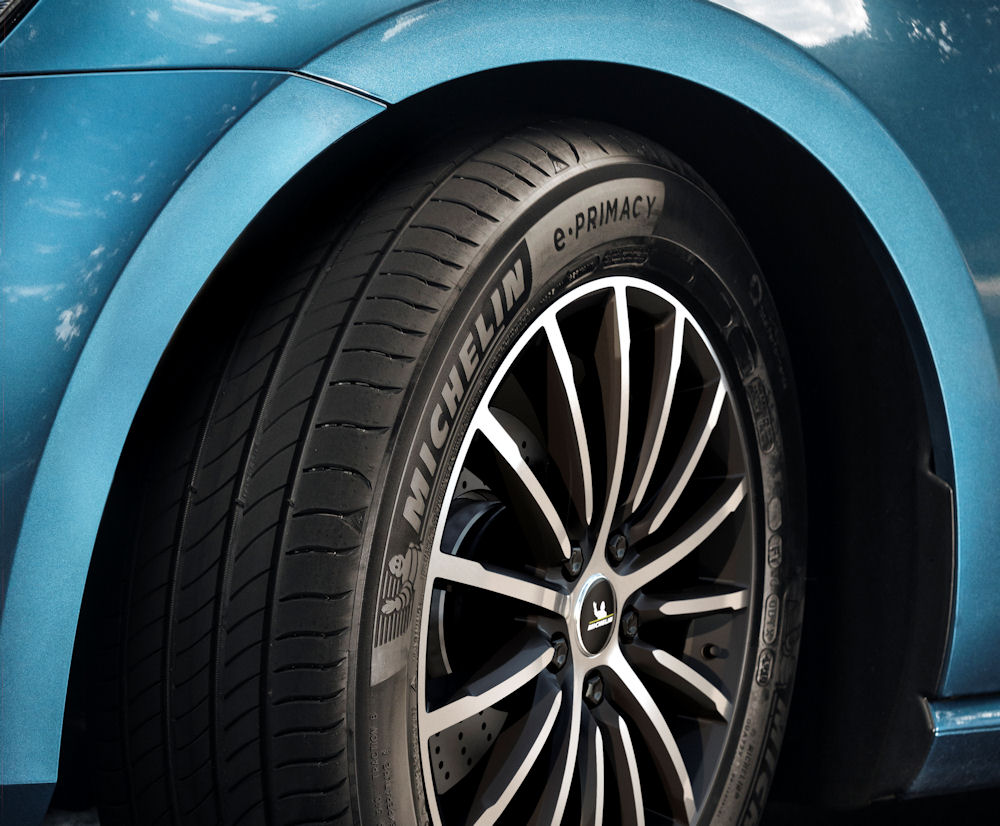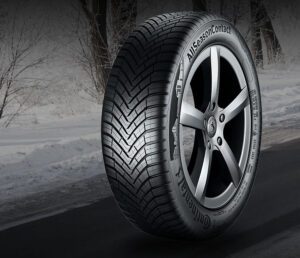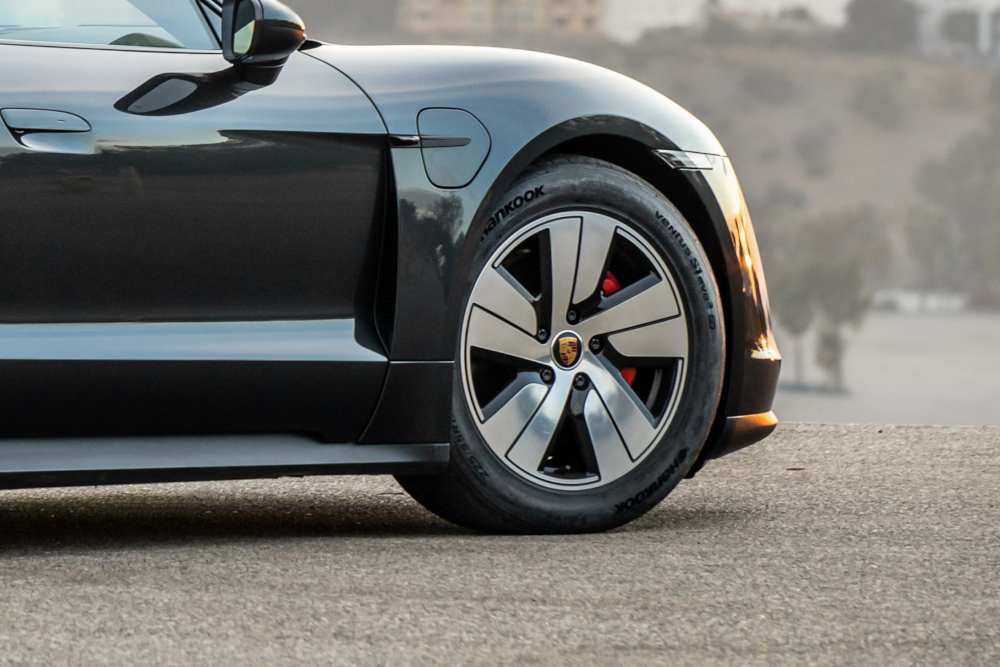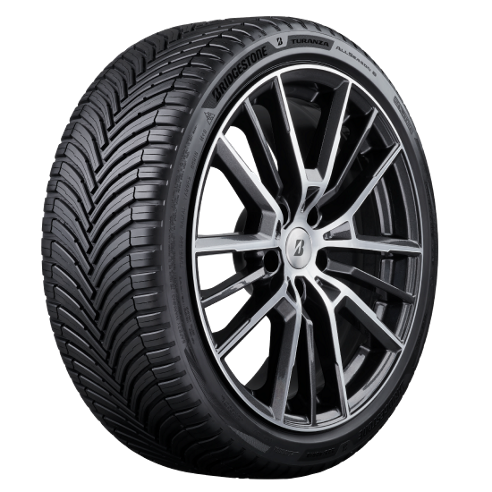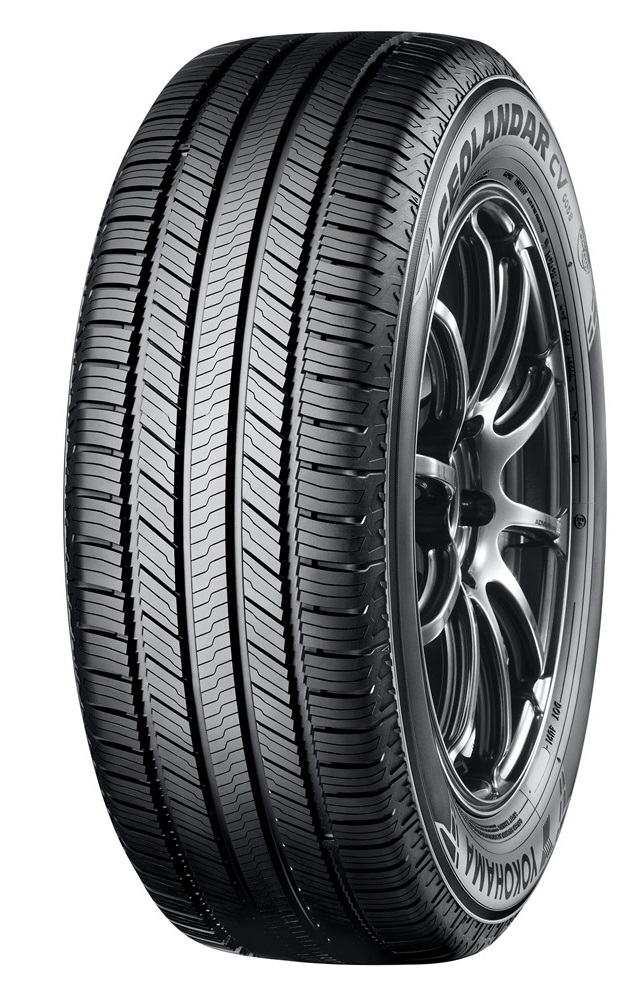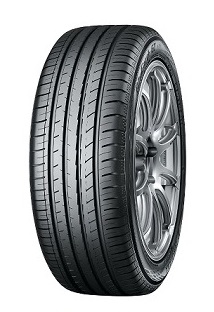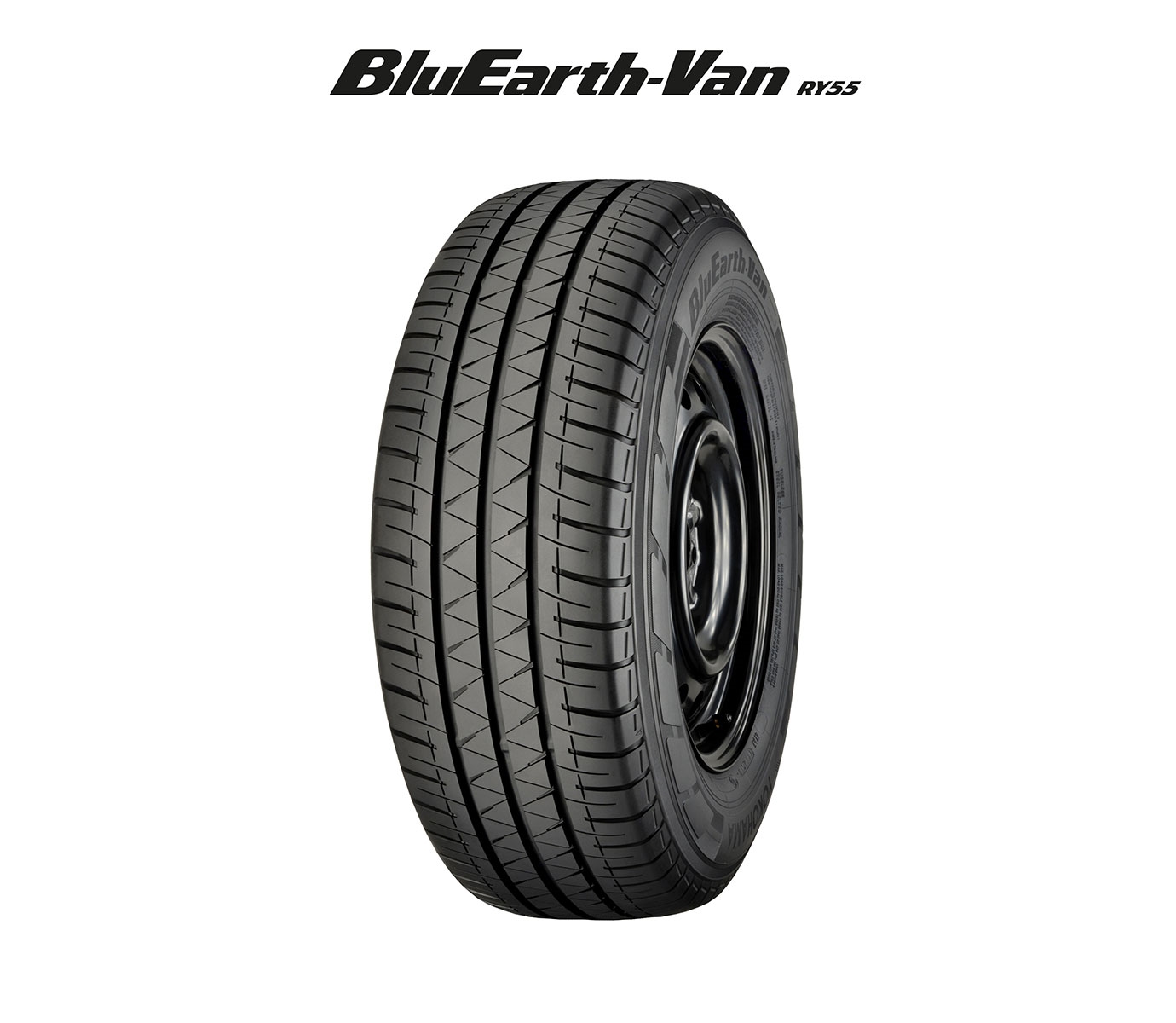What are the best electric car tyres in 2021?
The recent boom in electric vehicle sales has meant that tyre manufacturers are paying more attention to the demands of this market. While new car demand has stalled in most segments during the pandemic, full electric car sales have continued to grow. In Europe, estimates put full electric or hybrid car sales at around 12 per cent of the full market. And with various countries around the world introducing legislation to bring petrol and diesel production to an end over the next two decades, growth is certain to continue. Likewise, this will inevitably mean more manufacturers will provide replacement tyres tuned to these vehicles, especially as the second-hand market blossoms.
Electric cars and their tyre requirements differ from combustion powered cars. The lack of engine noise means tyres need to offer similarly low noise levels to complement the comfort levels EVs offer. The higher weight of electric cars means the tyres need to be suitable for the increased load. Tyres also wear differently, since EVs transmit high levels of torque through the tyres immediately compared to the slower ramp-up for combustion transmission. Though the driver assistive technologies typically included in EVs can help to avoid the tyre slip you might expect, making the use of the tyres’ tread potentially more efficient.
The primary consideration is fuel efficiency. Tyres with low rolling resistance – and therefore high fuel efficiency – are used to maximise the distance coverable on a full tank, which is still some way behind petrol and diesel engines.
However, WhatTyre believes that this should not come at the expense of car tyres’ core purpose: safety. The most direct route to reducing rolling resistance, thereby increasing fuel efficiency, is by compromising on grip. This is why wet grip was chosen alongside fuel economy and noise on the European tyre label – to achieve highly in both categories, while also producing a good all-round tyre, tyre manufacturers must have an extremely high degree of technical competence, including cutting edge chemical and engineering expertise.
It is worth considering that the range of the battery powered electric car is vastly improved in the latest models compared to even a decade ago when the first specialist electric car tyres appeared, such as the Michelin Energy E-V. The chargepoint network is growing rapidly. Popular electric car models can run on tyre sizes that are not conventional for petrol and diesel fuelled cars. These can also include XL markings to indicate reinforced tyre construction to allow for heavier loads. Yet many of the biggest names in tyres are supplying the UK market with fitments in their current high and ultra-high performance summer tyres suited to the top electric models. While many also include specialist tyres for electric cars too, the decision a motorist must make is whether the benefits of fitting these products, which target increased range, are better for their car and driving than a conventional tyre line, which often had a more rounded performance criteria in its development.
Finally on this point, the two approaches to supplying electric vehicle tyres are converging. Tyre manufacturers are adding EV-specific technologies into certain fitments of their core tyre models and indicating their presence with a sidewall marking. Pirelli, which specialises radically in the so-called ultra-ultra-high performance segment for luxury vehicles and hypercars, has introduced these technologies with the “Elect” branding. Elect tyres, which are indicated by the word imprinted on the tyre’s sidewall, include technologies to reduce rolling resistance, increasing fuel economy and range, reduce noise, and support the extra weight and torque of electric cars. This technology already appears on the Pirelli P Zero tyres the manufacturer supplies to the electric Porsche Taycan.
This innovation – and similar developments by other tyre manufacturers – is almost completely available on original vehicle tyres right now (albeit also replaceable by the franchised car dealers). We can expect to see more of these specialist electric vehicle edition tyres become more available from garages and fast-fit tyre retailers as electric vehicle take-up ramps up.
How we selected the best tyres for electric cars in 2021
Like every other category in this inaugural WhatTyre Awards, we used our Tyrescore algorithm to identify the leading candidates in this segment. The Tyrescore is our custom metascore, developed to boil down our knowledge of the UK tyre market to a single headline mark out of ten. This quick reference is designed to promote the best products. It uses several data sets looking at tyre performance. Our algorithm is designed to emphasise the most important performance attributes of tyres for most UK motorists – including key handling, safety, and cost of ownership performance indicators. Like all algorithms, the Tyrescore is dynamic and will be developed to consider new datapoints, so all scores used in this ranking were correct in March 2021.
However, for this segment more than any other, we also needed to bring in more of our knowledge of the tyre market to generate a longlist that acknowledges the range of product options available. Independent magazine testing of electric car tyres has been sparse so far, and largely limited to a few isolated comments. With so many new electric cars sold recently, it made sense to consider the tyre ranges the car manufacturers are selecting for the most popular models. While there are some tyres made specifically for electric cars, many tyre manufacturers are augmenting existing lines with technologies suited to electric vehicles, as we wrote in the section above. Another example of this would be Bridgestone’s Enliten technology, which results in a big reduction in tyre weight. The manufacturer has produced existing models with Enliten, as well as its Turanza T001 Eco.
And here’s what Korean tyre manufacturer Hankook’s UK sales director Paul Emery told our sister site Tyrepress about its own electric car tyre flagship: “Our Ventus S1 evo 3 EV is a tyre specially developed for EVs. The tread pattern of the Ventus S1 evo 3, our ultra-high performance tyre for passenger cars and SUVs, was adapted to reduce tyre noise which may be perceived as louder in EV interiors due to the absence of engine noise. Our EV tyre also positively supports the range of the battery, with low rolling resistance and very good aerodynamics.” This is a good summary of how many tyre makers are responding to the growth of electric cars in the short term.
Methodology for selecting the best electric car tyres
The key bit of information visitors need to make the most of WhatTyre’s whole-market product comparison service is the size of their tyres. This can be found on the current tyres’ sidewall – see our guide here for locating your tyre size, as well as an explanation of what it all means. We prefer this to numberplate or car model-based systems both because it is more likely to be accurate and because it is a good way to get in touch with your tyres. Too often, tyres are not recognised for the huge amount of sophisticated engineering know-how they contain. As a safety-critical item, drivers are well-advised to inspect their tyres thoroughly and frequently. They are also a key component in delivering comfort and driving enjoyment.
In generating the longlist of candidates for the WhatTyre Electric Car Tyre of the Year 2021, we considered a range of datapoints, but started with three tyre sizes from which to select models. These are sizes used within the range of the three top-selling electric cars in Europe: the Renault Zoe, the Tesla Model 3, and the Volkswagen ID.3. The market-leading Zoe runs on the smallest tyres of the three (we picked the 195/55 R16 size of the i Iconic and i GT Line variants). For the Model 3 we chose the 235/35 R20 tyre size of the Performance model to maximise the range of sizes required to supply these market leaders. The VW ID.3 is the youngest of the three models, but is catching up quickly, capitalising on Volkswagen’s existing popularity and reputation in its full entry to the battery-powered electric car market. We chose the base 18” fitment (215/55 R18) as our example size.
We want our electric car tyres have A-rated fuel efficiency on the tyre label for the 16” tyre, B-rated for the 18” size and C-rated for the 20” size. These ratings put these products at the top of the list of tyres available in these sizes for fuel efficiency, thereby maximising the range of the battery powered car.
Also looking at the label, we think the most suitable tyres should be tuned to take advantage of the noise comfort of electric cars, so we eliminated any tyre that had more than two soundwaves and preferred a single soundwave rating.
At the same time, these two characteristics do not give us any indication of the tyre’s grip and safety characteristics. Therefore, we also wanted tyres to achieve a minimum wet grip rating of B on the tyre label.
We also eliminated any tyre with a speed rating below V. V indicates a tyre is safe to use up to 149mph – yes, road users in the UK should not exceed 70mph, but V (and above) speed ratings are extremely common in car tyres, representing a level of safety commensurate with high performance vehicles. We did not consider winter tyres in this category. This is partially because they are so rarely used in the UK anyway – they account for around 0.5 per cent of annual car tyre sales. But mainly, the criteria above is not suited to products whose core purpose is to provide grip where summer tyres cannot. We also ignored SUV fitments, particularly in the 18” size, where there is some crossover, since the VW ID.3 is not an SUV.
Unlike other categories in our 2021 WhatTyre Awards, we did not require the tyre to have appeared in independent tyre tests. To do so would have automatically eliminated specialist electric vehicle tyres, which offer increased range (see more below). We did not consider any product with a Tyrescore underneath the threshold of 7.00.
Electric car tyre longlist – a game of two halves
We have split our longlist into two groups of tyres meeting our criteria in the sample sizes. Tyrescore 1.2 (Alpha Romeo) favours tyres that have subjected themselves to independent testing. This is an important feature, as independent tests provide verification of the performance of certain products. WhatTyre will develop the Tyrescore with more datasets in the future to tune our recommendations further. The electric car tyre segment will be a target of this development, alongside UUHP tyres, 4×4 tyres, and others.
Eco/Electric Car Specialist tyres
Using our extensive criteria above, only three tyre models that are specifically designated as “Electric Vehicle” or “Eco” Tyres make the cut. In part, this is because this segment is still developing and tyre manufacturers are developing their product range to cater to this market, especially in the replacement sector, which generally drags around two years behind original tyres supplied to the car manufacturers. It is also a result of the relatively novel tyre sizes used by the most popular electric vehicles. All three nominations record their best Tyrescore in the 16” Renault Zoe size (195/55 R16), the oldest of the three models from which we derived our 2021 Awards sample sizes.
First, with a Tyrescore of 9.09 is the Bridgestone Turanza Eco (195/55 R16 91V). The tyre is the first to use Bridgestone’s low rolling resistance, reduced materials technology, Enliten. Fitted as standard on VW’s ID.3 and the Fiat 500 La Prima, the tyre helps to conserve battery by reducing tyres’ weight by up to 20 per cent against equivalent standard premium summer tyres. This also equates to up to 2kg fewer raw material resources required to produce every tyre. It also scores highly thanks to A rated fuel economy and wet grip. It compromises slightly on noise with two soundwaves on the label equating to 71dB pass-by noise. It appeared in a single test by Auto Motor und Sport magazine in Germany, helping it to climb to an inflated Tyrescore versus the other two products in this section.
Continental’s EcoContact 6 boasts substantial improvements over its predecessor, with up to 20 per cent better mileage and 15 per cent lower rolling resistance, as well as more precise handling and shorter braking distances on wet and dry roads. Its A-grade fuel efficiency is backed by B-grade wet grip. The tyre has been tested in the ADAC summer tyre test of 2020; competing against products tuned less for efficiency, it achieved a “Satisfactory” result. The tyre comes in with a Tyrescore of 8.18, but with tests more weighted towards eco-friendly credentials, we think this tyre could rate even higher. Like the Bridgestone, the EcoContact 6 represents a slight compromise on noise, with two soundwaves on the label.
The Michelin ePrimacy is the newest tyre in our longlists this year, and only just makes it due to its launch in late 2020. The tyre is the successor to the Energy Saver. It is first tyre to be released with an Environmental Product Declaration. Rated A for fuel (energy) efficiency and B for wet grip on the tyre label, a pairing achieved by less than one per cent of all summer car tyres sold in Europe, the e.Primacy promises the lowest rolling resistance in its class. Michelin thinks it can increase EV range by up to seven per cent. Using its Long Lasting Performance concept, Michelin adds that the tyre can pass the European R117 standard wet braking approval test for new tyres even after the equivalent of 30,000km. Lastly, the tyre is the only eco model on our longlist to achieve a one soundwave noise rating – at 69dB it is much quieter than the other two eco/EV tyres. It has an initial Tyrescore of 7.58, but we expect that to rise when it is tested.
While these are the only three tyres to make this part of the list this time around, many other manufacturers are producing products that could challenge in future. Korean manufacturer Kumho, for example, is producing a model called the Wattrun, which, with a Tyrescore of 7.27 in size 205/55 R16 91V and A-B label grades could challenge in future. It is not yet available in any of our sample sizes, but worth looking at if you own a Nissan Leaf, for example. The Toyo Nanoenergy 2 in size 195/55 R16 87V just misses out due to its Tyrescore of 6.97, but is otherwise a decent candidate, with A-grade energy efficiency.
Conventional tyres for electric vehicles
With specialised models that make the grade relatively thin on the ground, it is worth considering tyre lines that are not specifically aimed at electric vehicles or the “eco” segment. With models that display eco credentials available in our sample sizes, these tyres are well positioned to offer an option to electric vehicle drivers looking to replace tyres.
195/55 R16:
In the 16” size, three models with A-B energy efficiency and wet grip stand out. The Michelin Primacy 4 will be familiar to readers of our full 2021 WhatTyre Awards coverage, and it remains an excellent option in 195/55 R16 or 215/55 R18. Its Tyrescore of 9.14 is outstanding, while it also impresses with 68dB, one-soundwave noise ratings in both sizes.
The Hankook Ventus Prime 3 has an exceptional Tyrescore of 9.07 too (195/55 R16 87W) but betters even the Primacy 4 when it comes to noise. With just 67dB of pass-by noise, it is the quietest tyre on our longlist. The tyre has been regularly recommended by independent testers in the last five years, and offers truly all-round performance for drivers looking for an economical, comfortable tyre that also has a slightly sporty feel.
The Goodyear EfficientGrip Performance is another tyre familiar from other WhatTyre Awards 2021 categories that offers a rounded performance. It has maintained a Tyrescore of 9.04 despite being a little older than many of the other longlisted products here, continuing to pick up recommendations in tyre tests. Also A-B rated, the tyre is also quiet at 68dB (one-soundwave), bringing a further energy efficient option to electric car drivers.
215/55 R18:
The 215/55 R18 size is where we see more competition, with many more tyres meeting our criteria. The Bridgestone Turanza T005 has been highly rated in tyre tests, helping it to a Tyrescore of 8.56 in this size. It is a little on the noisy side, with 72dB drive-by noise.
The Maxxis Premitra HP5 is a really interesting option – the top-rated sub-premium brand on our longlist, the model has gained its Taiwanese manufacturer Cheng Shin significant increases for its global tyre brand Maxxis’s reputation. It scores 8.54 in this size, and at 70dB is not particularly noisy too.
Likewise the Vredestein Ultrac Satin, scoring 8.43, and its parent company’s eponymous brand Apollo with the Aspire XP scoring 8.28, are also quieter than most at 70dB. Both tyres combine this with the requisite B-grade energy efficiency and A-grade wet grip too. The Vredestein and Apollo tyres are well regarded by testers (albeit using traditionally fuelled cars) too.
The Continental AllSeasonContact is an outlier in this size, in that it is the only all-season tyre to match all our other criteria. At 72dB it is a bit noisy, but the trade-off is getting year-round mobility. It scores 8.18 in 215/55 R18 99V, with B-B label grades. (Our top-rated all-season tyre, the Goodyear Vector 4Seasons Gen-3, which is available in the 16” size, misses out only due to no V or above speed rating. With a Tyrescore of 8.99 and A-rated energy efficiency – a first for a tyre that also carries the Three-Peak Mountain Snowflake sidewall marking for winter performance – it is worth investigating if you need all-season performance.
Finally, the BFGoodrich Advantage offers a B-A label with middling 70dB pass-by noise. In size 215/55 R18 99V, it scores 7.27.
Two tyres narrowly miss out on our list of 18” electric car tyres. The GitiPremiumH1 has a B-A-69dB (one-soundwave) label and some decent test results. However, the tyre is not currently available in the UK, so cannot be considered for the longlist. The Continental PremiumContact 6 has an excellent and deserved reputation among testers, but only has C-grade energy efficiency in this size. Depending on usage, electric car drivers could be attracted by its top-of-the-range performance attributes.
235/35 R20:
Finally, in the Tesla Model 3 (Performance) size of 235/35 R20 we longlist a grand total of one tyre. The Hankook Ventus S1 Evo 3 deserves to stand out in this category all by itself because it has C-grade energy efficiency on the tyre label, something no other product is able to achieve while meeting our other criteria. With a Tyrescore of 8.19, this is an excellent tyre for these dimensions, well regarded in tyre tests and delivering performance assured by original tyre supply deals with top luxury car marques, like Lamborghini and Mercedes. The electric Porsche Taycan is also supplied by Hankook, with the specially tuned Hankook Ventus S1 Evo 3 EV in two 19″ sizes for the front and rear.
Two tyres come close in this size. The Falken Azenis FK510 scores 7.81 in this size thanks to an impressive and sustained testing record. It is also very impressive in its noise performance with only 69dB – sub-70dB at this size is quite an achievement. The Michelin Pilot Sport 4 S is one of the tyres originally supplied on the Tesla Model 3 Performance (depending on specification). It registers 7.80 Tyrescore in size 235/35 R20 92Y, but can only get an E-grade for energy efficiency on the tyre label.
| ‘Specialist’ EV/Eco Tyres | Size | Tyrescore | |
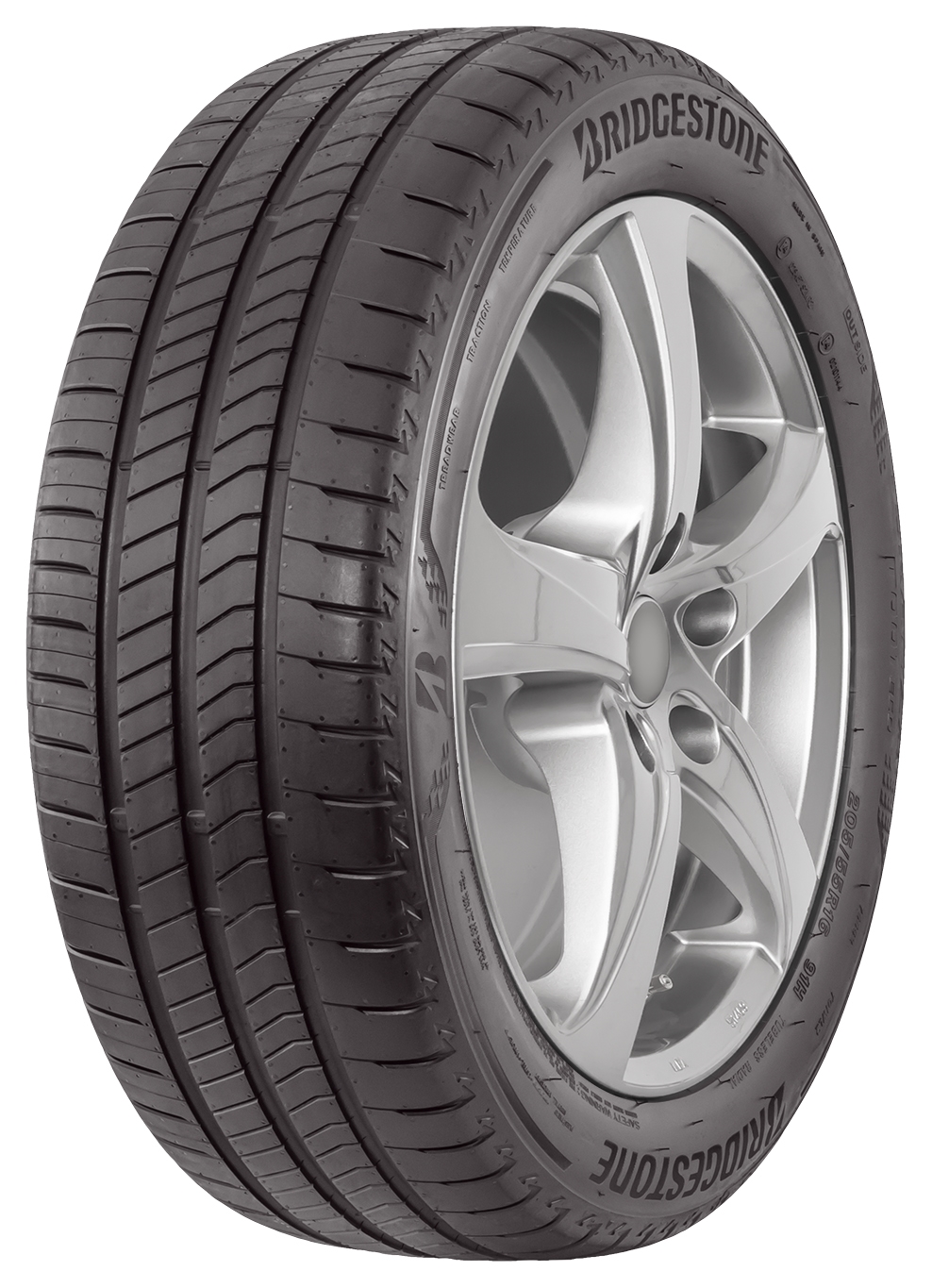 |
Bridgestone Turanza Eco | 195/55 R16 91V | 9.09 |
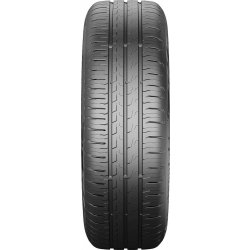 |
Conti EcoContact 6 | 195/55 R16 87V | 8.18 |
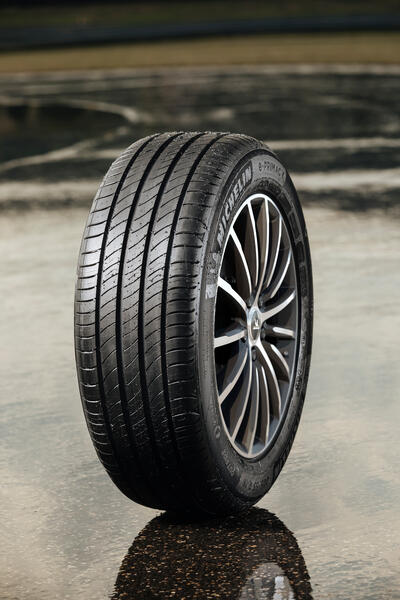 |
Michelin e.Primacy | 195/55 R16 91W | 7.58 |
| ‘Conventional’ Tyres | Size | Tyrescore | |
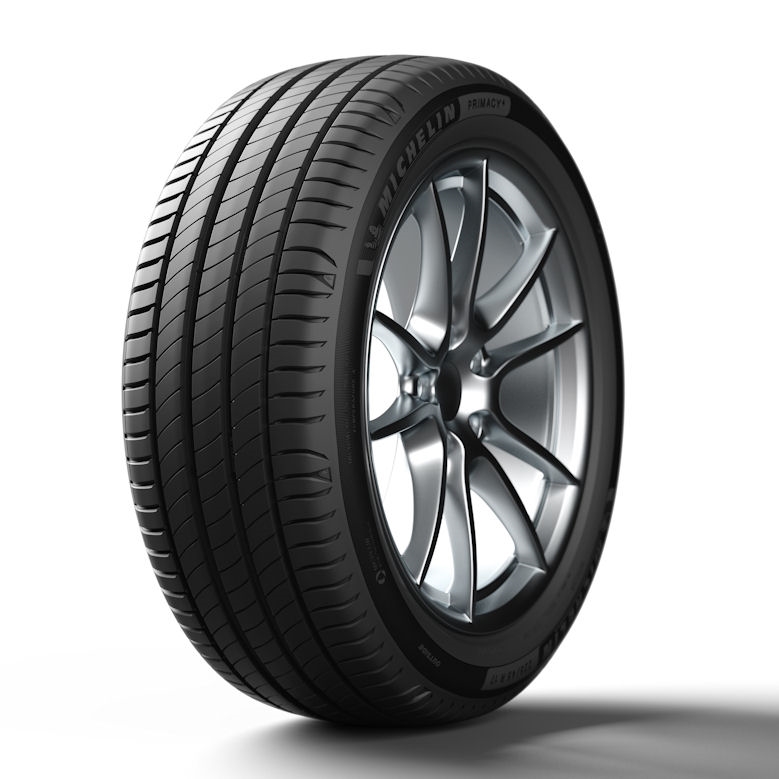 |
Michelin Primacy 4 | 195/55 R16 87W | 9.14 |
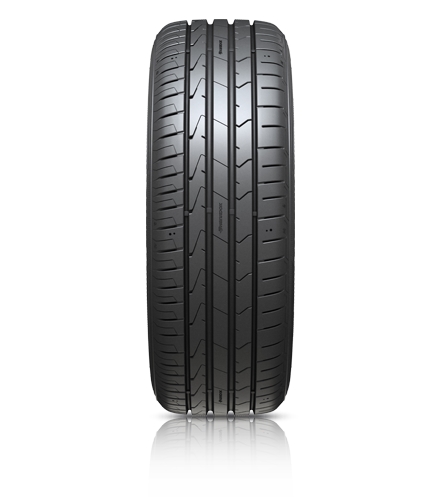 |
Hankook K125 Ventus Prime 3 | 195/55 R16 87W | 9.07 |
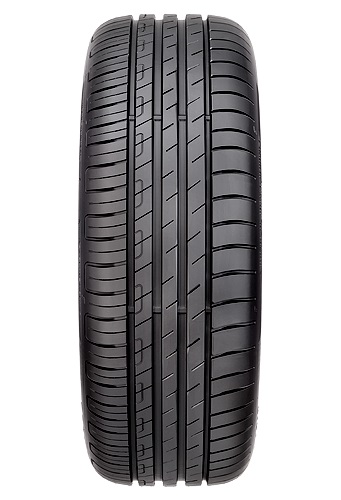 |
Goodyear EfficientGrip Performance | 195/55 R16 91V | 9.04 |
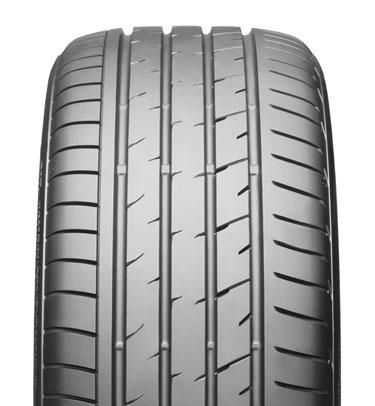 |
Bridgestone Turanza T005 | 215/55 R18 99V | 8.56 |
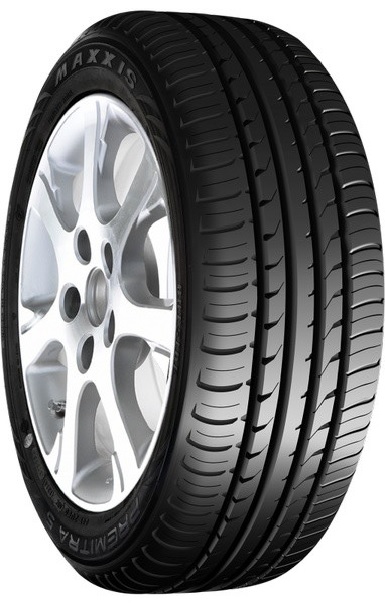 |
Maxxis Premitra Hp5 | 215/55 R18 99V | 8.54 |
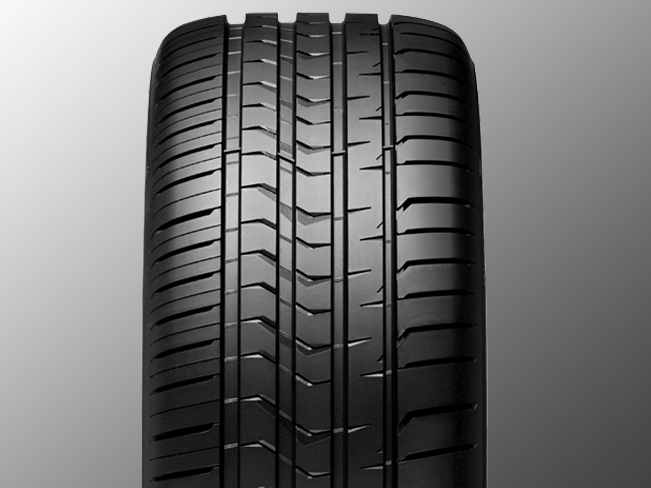 |
Vredestein Ultrac Satin | 215/55 R18 99V | 8.43 |
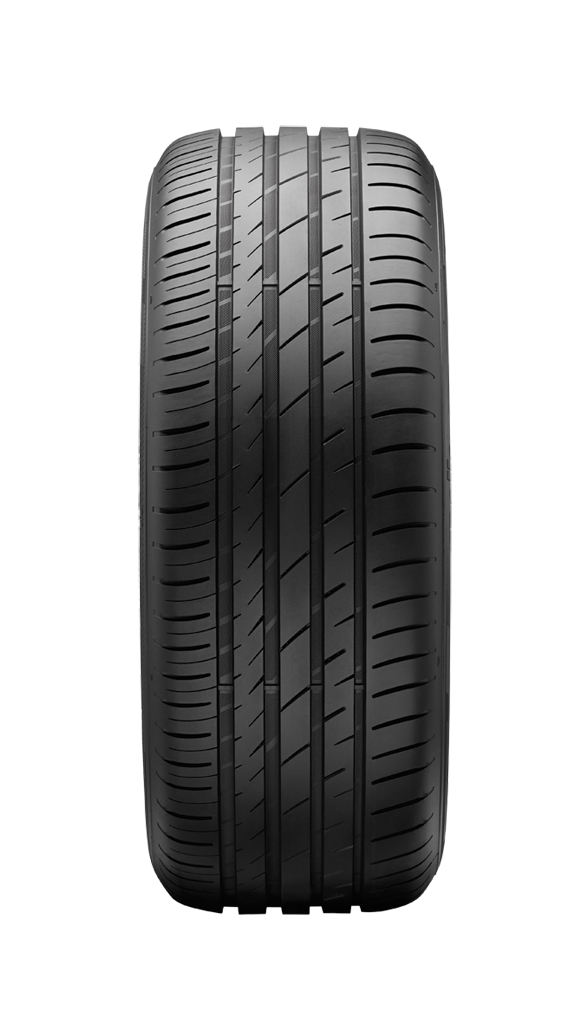 |
Apollo Aspire XP | 215/55 R18 99V | 8.28 |
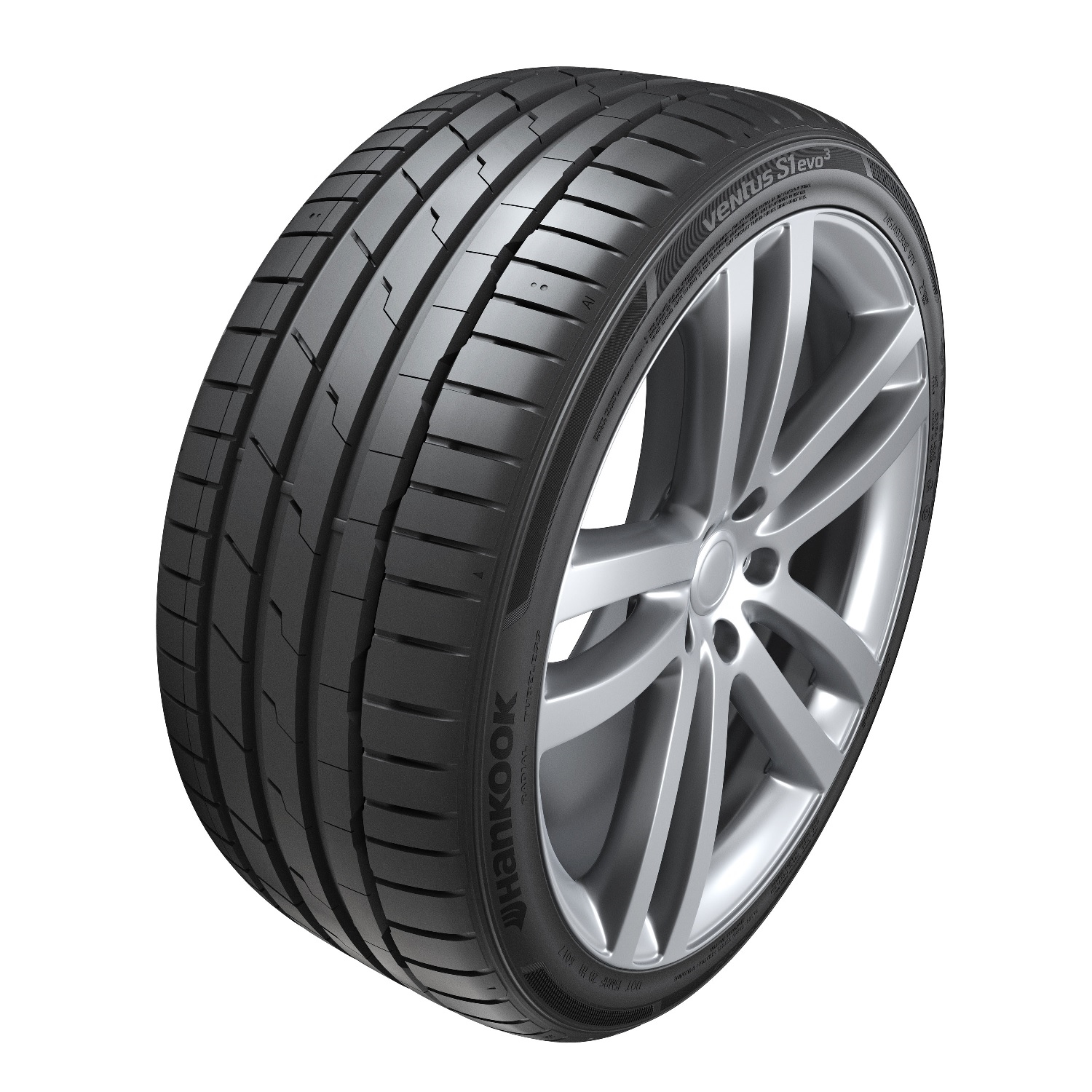 |
Hankook Ventus S1 Evo 3 K127 | 235/35 R20 92Y | 8.19 |
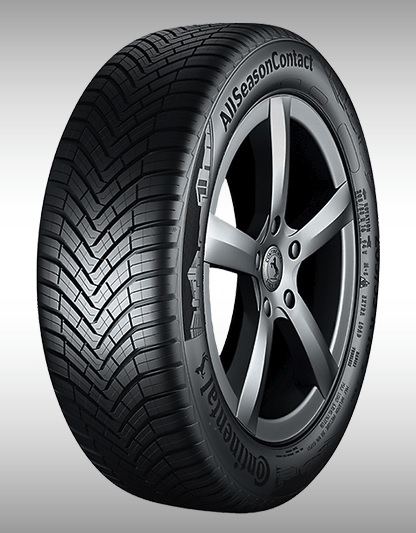 |
Continental AllSeasonContact | 215/55 R18 99V | 8.18 |
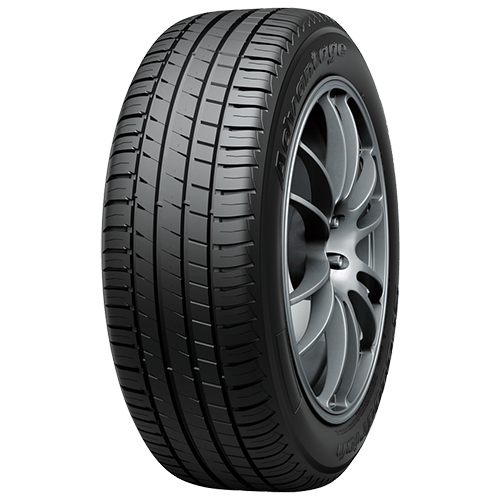 |
Bf Goodrich Advantage | 215/55 R18 99V | 7.27 |
About the TyreScore
All TyreScores quoted in the WhatTyre Tyre of the Year Awards 2021 are correct as of our judging period in March 2021, but more data and a new version of the algorithm will inevitably mean changes. When you buy your next tyres, we recommend you make WhatTyre part of your pre-sale research to determine the best tyre for you.

